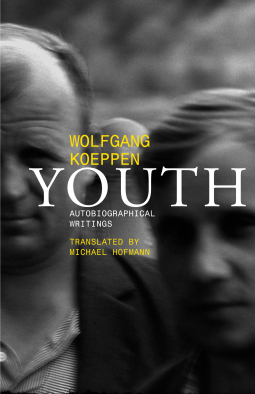 |
| Yale UP, 14 Nov 2014, $16.00 |
„Vivre,
c'est s'obstiner à achever un souvenir“. Patrick Modiano, Livret de famille (1977).
Before
Patrick Modiano won the Nobel Prize for Literature in 2014, his name was a
blank slate for me. There are always some names out there who even a wide-read
reader will never have heard of (another example would be the 2009 winner,
Herta Müller, who just wasn’t on anyone’s mind and who unfortunately faded back
to obscurity after her win). It is a pleasure to get to know such a widely
acclaimed author as Modiano.
According
to the statement released by the Nobel committee, he won the prize “for the art of memory with which he has evoked the
most ungraspable human destinies and uncovered the life-world of the
occupation“. The first
part, “the art of memory”, is especially important when looking at the
collection at-hand. Suspended Sentences groups together three novellas,
Afterimage (Chien de printemps, 1993), Suspended Sentences (Remise de peine,
1988) and Flowers of Ruin (Fleurs de ruine, 1991). As Modiano ascertains in the
introduction, “taken together … those books form a single work”. Mark
Polizzotti’s translation easily manages to make sense of Modiano’s particular
style, which is easily read but not necessarily understood. From what I could
see with my limited French skills, not that much is missing from the source text.
The main
focus on these novellas is on remembrance. Modiano has been likened to Proust,
and I can see where that is coming from. The texts are fragments that recall
things that have been, while often reminiscing about things that happened even
further back. The narrator in Flowers of Ruin seemingly recalls meeting the
elusive Pacheco, while also retelling that man’s life story before the Second
World War. Even if this sounds confusing, it is actually not, which makes it
such a pleasure to read these texts.
Afterimage
tells the story of a photographer, a student of famous photographer Robert
Capa, who our anonymous meets and works with. Suspended Sentences deals with
two brothers living under the care of Annie and her ragtag team of compadres.
This team is somewhat seedy, dealing with liquor and travelling to and fro
Paris throughout the narrative. While raising a lot of questions, most of them
are left unanswered and will sink down with the memories the narrator summons
to write his story. Flowers of Ruin is a mixture of a whodunit and the
recollections of a flâneur. Again and again, points spring up, but none of them
will be connected, something is always missing. This story felt like coming
home to me, as the vivid descriptions of streets, places and avenues remind me
so much of the past summer: While Modiano’s Paris is surely different from the
modern one, the feeling I got when wandering through it last June was surely
similar.
In my opinion, the story itself does not
matter in these novellas. Take a hike down memory lane, get swept away by the
currents of remembrance, reminisce on the people you have met and the thousands
you forgot, jump from picture to picture and from emotion to emotion, enjoy the
ride. Making sense of the past is often impossible, especially if we only rely
on our faulty memories. Will there be another Patrick Modiano in a hundred
years’ time? We will have to see. Until then, this collection is the way to go.
I will give it 4 ½ stars, rounded down to 4. The translation is spectacular,
the stories are a pleasant and intriguing read, and what ultimately counts is
the ride, not the outcome, but there is still something missing to make it a
solid five stars. Still, this is highly recommended.
Thanks to
Yale UP for providing a copy through Netgalley. Suspended Sentences: Three
Novellas was released November 11, 2014 for a price pf $16.00 and was
translated by Mark Polizzotti.
